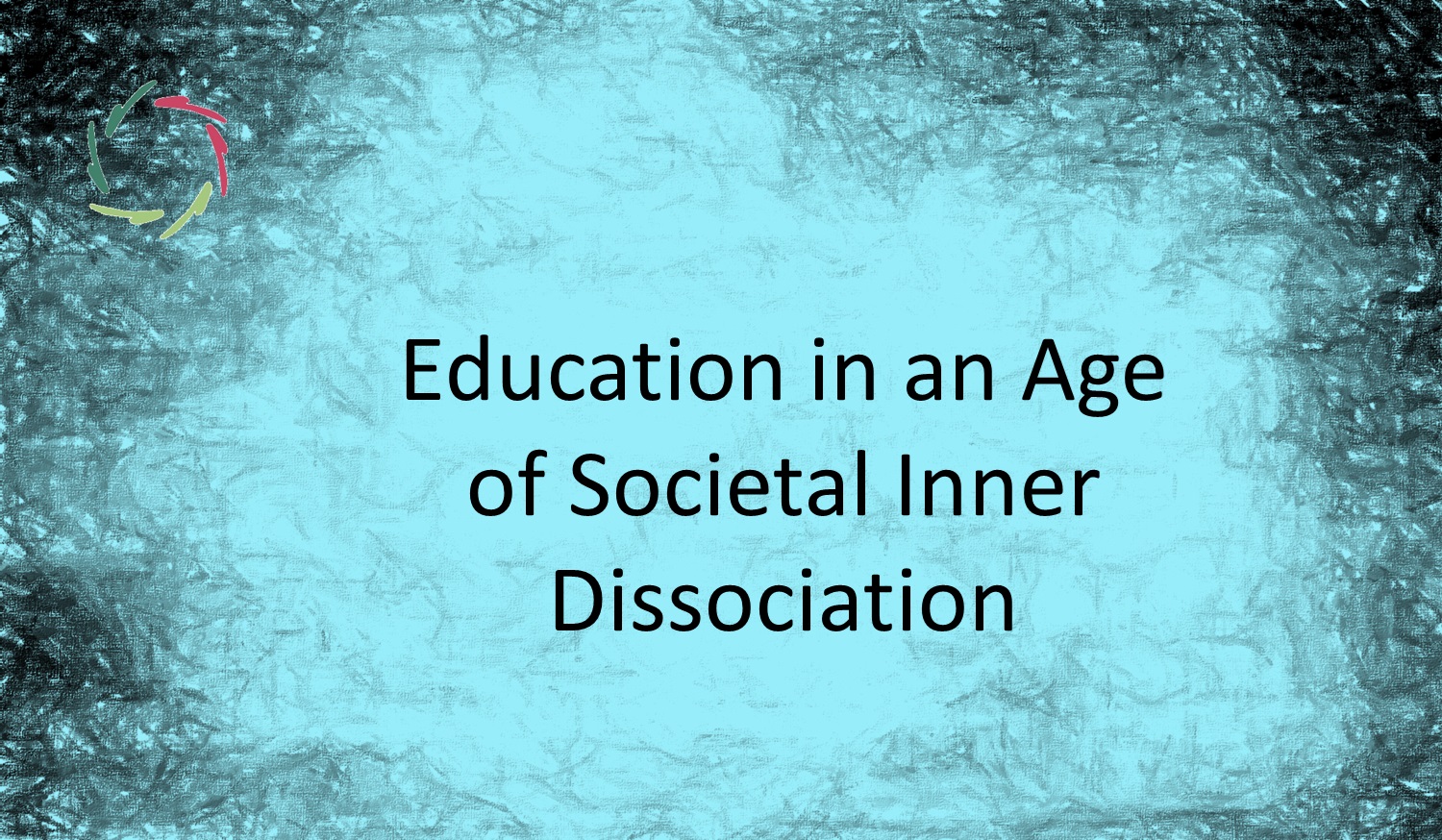Education in an Age of Societal Inner Dissociation

Education often fails to address the deeper needs of students in a world increasingly affected by Societal Inner Dissociation (SID). By promoting a more integrated approach to learning, education can better prepare students for a cohesive and resilient society.
The present blog explores the challenges of education in an age of SID and highlights opportunities for reforming education to foster critical thinking, emotional intelligence, and self-awareness. This blog is part of the *SID* series. Please read the primary blog of this series for a basic understanding of Societal Inner Dissociation (SID).
The current state of education
In many educational environments, success is measured by students’ ability to memorize and regurgitate information. As a result, students remain disconnected from the material’s deeper significance. This method of teaching fosters a superficial engagement with knowledge, where the focus is on passing exams rather than exploring ideas and developing a genuine understanding.
The emphasis on standardized outcomes reduces education to a series of benchmarks that students must achieve, often at the expense of their personal development. Learning becomes a transactional process, where knowledge is acquired as a means to achieve a good grade, college admission, or future employment. This transactional approach contributes to SID by encouraging students to disconnect from their intrinsic motivations and to view education as a series of hurdles to overcome rather than an opportunity for growth.
Impact on students
As students are conditioned to prioritize external achievements, they often lose touch with their inner values and passions. Over time, this disconnect can lead to a deeper sense of dissatisfaction and alienation as students struggle to find meaning in their educational pursuits. SID is reinforced when education becomes a source of stress and anxiety rather than a pathway to fulfillment and understanding.
Instead of being driven by a genuine interest in the subject matter, students may become disengaged, apathetic, or even resentful of the learning process. This erosion of intrinsic motivation further exacerbates SID.
Students may even experience anxiety, depression, and burnout, all of which are symptoms of a deeper dissociation from their inner selves. The constant drive to meet external expectations leaves little room for emotional growth or the development of a strong, cohesive sense of identity. In this way, the current education system not only fails to address SID but actively contributes to its proliferation.
Opportunities for reform
To counteract the effects of SID in education, there is a need for systemic reform. Education should encourage students to explore different perspectives and develop their analytical skills. This approach helps students connect their learning to real-world issues and their personal values. By fostering a sense of curiosity and a love of learning, education can become a tool for integrating knowledge with personal meaning.
Another critical aspect of reform is the integration of emotional intelligence and self-awareness into the curriculum. Students should be taught how to develop empathy for others. Programs that focus on mindfulness, social-emotional learning, and reflective practices can play a significant role in reducing SID and promoting a more integrated sense of self.
By creating learning environments that honor individual differences and foster personal growth, holistic education helps students develop a strong sense of identity and purpose. This approach counters SID by encouraging students to integrate their academic, emotional, and spiritual lives, leading to a balanced and fulfilling educational experience.
Case studies
Several schools and programs around the world offer valuable insights into how education can be reformed to address SID. For example:
Finland’s education system is often cited as a model for holistic, student-centered learning. With a focus on collaborative learning, critical thinking, and the well-being of students, Finnish schools prioritize the development of the whole person. There is minimal emphasis on standardized testing, and instead, teachers are encouraged to foster a love of learning through engaging, relevant, and meaningful experiences. This approach has led to high levels of student satisfaction, low levels of stress, and strong academic outcomes, demonstrating that education can be both effective and integrative.
Waldorf education, based on the principles of Rudolf Steiner, is another example of a holistic approach that counters SID. Waldorf schools emphasize creativity, imagination, and emotional development alongside academic learning. The curriculum is designed to meet the developmental needs of students at different stages of their growth, with a focus on nurturing a sense of wonder and connection to the world. This integrative approach helps students develop a strong sense of self and a deep connection to their learning, reducing the likelihood of dissociation.
In short
Education systems have the potential to be powerful tools for integration and personal growth. Yet, many currently contribute to SID by prioritizing superficial outcomes over deep learning and development. By reforming education to emphasize critical thinking, emotional intelligence, and holistic growth, we can create learning environments that not only prepare students for academic success but also foster a sense of inner cohesion and fulfillment. These changes can help build a more resilient, integrated society where individuals are connected to their true potential and to each other.
Lisa is ready for all personal coaching ― of course, without manipulating anyone.


